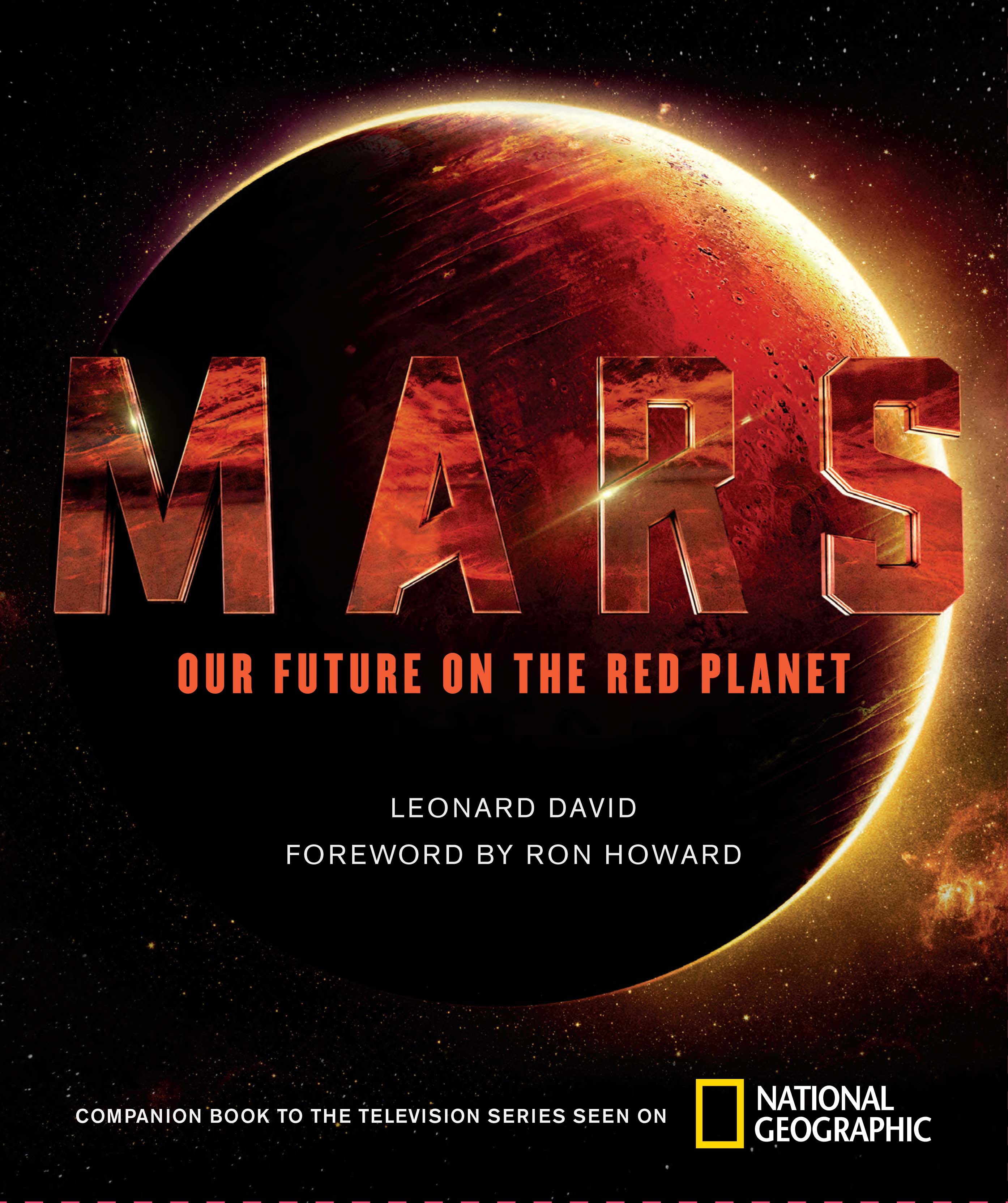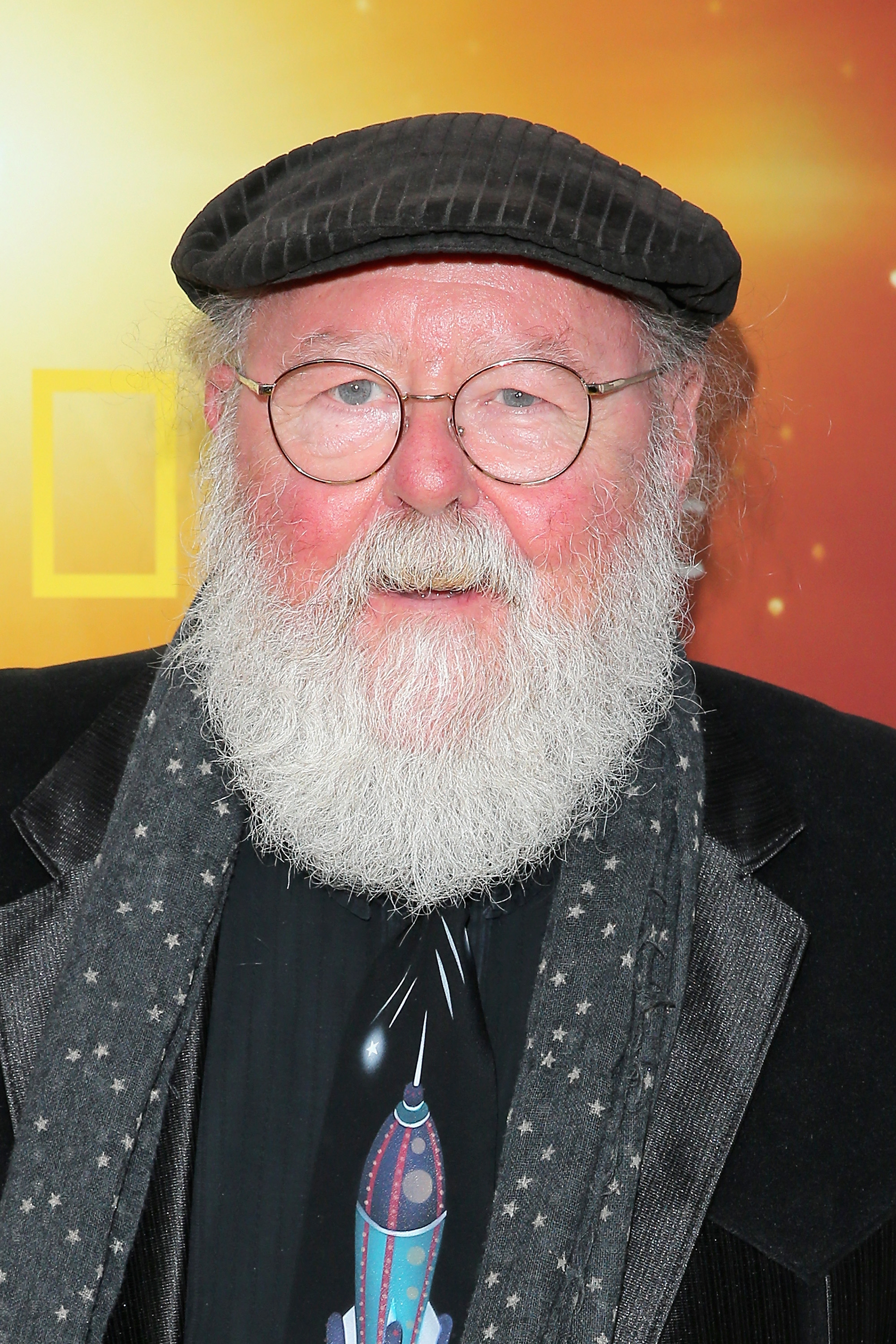Astronauts on Mars: New Book Shows What It Will Take to Get There

Sending people to Mars won't be easy, but the journey isn't entirely out of reach. A new book published by National Geographic explains how the human race can conquer the challenges of getting to Mars and thriving on the Red Planet, blurring the lines between science fiction and reality.
In the new work, "Mars: Our Future on the Red Planet," award-winning journalist (and Space.com contributor) Leonard David takes readers on a journey to the future to show what it would take for people to travel to Mars and not just survive, but also prosper in the new world.
"It's dangerous. It's going to be hard to do," David said in an interview with Space.com. "Not only [to] survive Mars, but [also to] thrive. And the thrive part — that's where some hard discussion and technological development is going to happen."

Along with technical details and philosophical discussions about the human journey to Mars, David's book features large, colorful images of the Red Planet as well as historical photos of humanity's previous endeavors with space exploration. It even includes some images from the National Geographic Channel's "Mars" television series alongside commentary about the new show.
With the eye-catching cover and gorgeous images alone, this book would make a great addition to any space lover's coffee table. But the real meat of the book lies in the content of its text.
The title went on sale Oct. 25 as a complement to the National Geographic series, which premieres Monday (Nov. 14) on the National Geographic Channel.
In the foreword to the book, Ron Howard, executive producer of "Mars," wrote that the series "tell[s] the story of colonizing Mars looking back from the future, with the premise that we've already gone to Mars and this is what it took to get us there." ['Mars': The Epic National Geographic Channel Miniseries in Pictures]
Breaking space news, the latest updates on rocket launches, skywatching events and more!
The docudrama intertwines a theatrical reenactment of the first crewed mission to Mars with expert interviews.
David's book also incorporates interviews with some of those Mars experts, such as:
- NASA astronauts Buzz Aldrin and brothers Scott and Mark Kelly
- Marcia Smith, founder/editor of SpacePolicyOnline.com
- Penelope Boston, director of NASA's Astrobiology Institute
- Pascal Lee, co-founder of the Mars Institute
- Bret Drake, space systems architect at the Aerospace Corporation
- Jim Pass, CEO of the Astrosociology Research Institute
- Nick Kanas, psychiatrist at the University of California, San Francisco
- Rob Manning, Mars engineer at NASA's Jet Propulsion Laboratory
The book not only examines the technological challenges of going to Mars, but also looks at life-science issues, psychological and philosophical issues, and even some of the ethics involved, David explained. Developing the technology to get to Mars is just one of the many challenges that humans will face in future missions to the Red Planet, David's book explains. Both the book and the new television series aim to represent those challenges as accurately as possible.
In the foreword to the book, Howard wrote that he is "very appreciative to National Geographic for being incredibly rigorous in its demand for authenticity and scientific accuracy. The level of vetting around the engineering and hard science throughout the scriptwriting process is something that we are proud of — and it's part of what makes this series unique. This isn't science fiction at all. It's real science."
Buy Mars: Our Future on the Red Planet on Amazon.com
Email Hanneke Weitering at hweitering@space.com or follow her @hannekescience. Follow us @Spacedotcom, Facebook and Google+. Original article on Space.com.
Join our Space Forums to keep talking space on the latest missions, night sky and more! And if you have a news tip, correction or comment, let us know at: community@space.com.

Hanneke Weitering is a multimedia journalist in the Pacific Northwest reporting on the future of aviation at FutureFlight.aero and Aviation International News and was previously the Editor for Spaceflight and Astronomy news here at Space.com. As an editor with over 10 years of experience in science journalism she has previously written for Scholastic Classroom Magazines, MedPage Today and The Joint Institute for Computational Sciences at Oak Ridge National Laboratory. After studying physics at the University of Tennessee in her hometown of Knoxville, she earned her graduate degree in Science, Health and Environmental Reporting (SHERP) from New York University. Hanneke joined the Space.com team in 2016 as a staff writer and producer, covering topics including spaceflight and astronomy. She currently lives in Seattle, home of the Space Needle, with her cat and two snakes. In her spare time, Hanneke enjoys exploring the Rocky Mountains, basking in nature and looking for dark skies to gaze at the cosmos.
